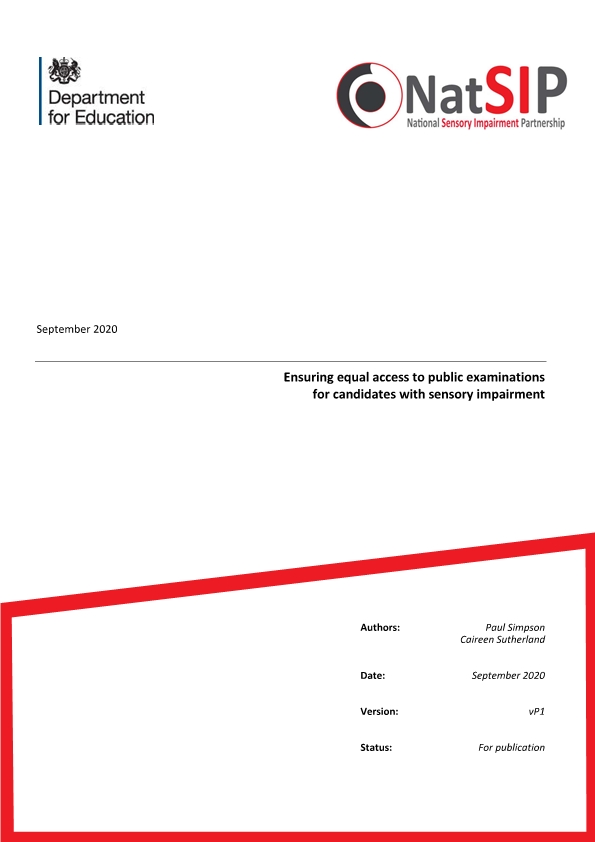- Access Arrangements are pre-arranged adjustments to assessment conditions.
- Access Arrangements allow candidates with impairments to access the assessment without changing the demands of the assessment.
- The focus of this material is on access arrangements relevant to candidates with sensory impairments.
- These materials are not a substitute for the JCQ guidance.
Welcome to the 'Examination access' materials created by NatSIP (National Sensory Impairment Partnership in conjunction with BATOD (British Association of Teachers of the Deaf) and VIEW (Professional Association of Vision Impairment Education Workforce).



This resource is designed to help SENCOs, specialist teachers of the sensory impaired and staff responsible for examinations in examination centres to identify and get approval for adjustments to access arrangements for candidates with accessibility needs resulting from sensory impairment.
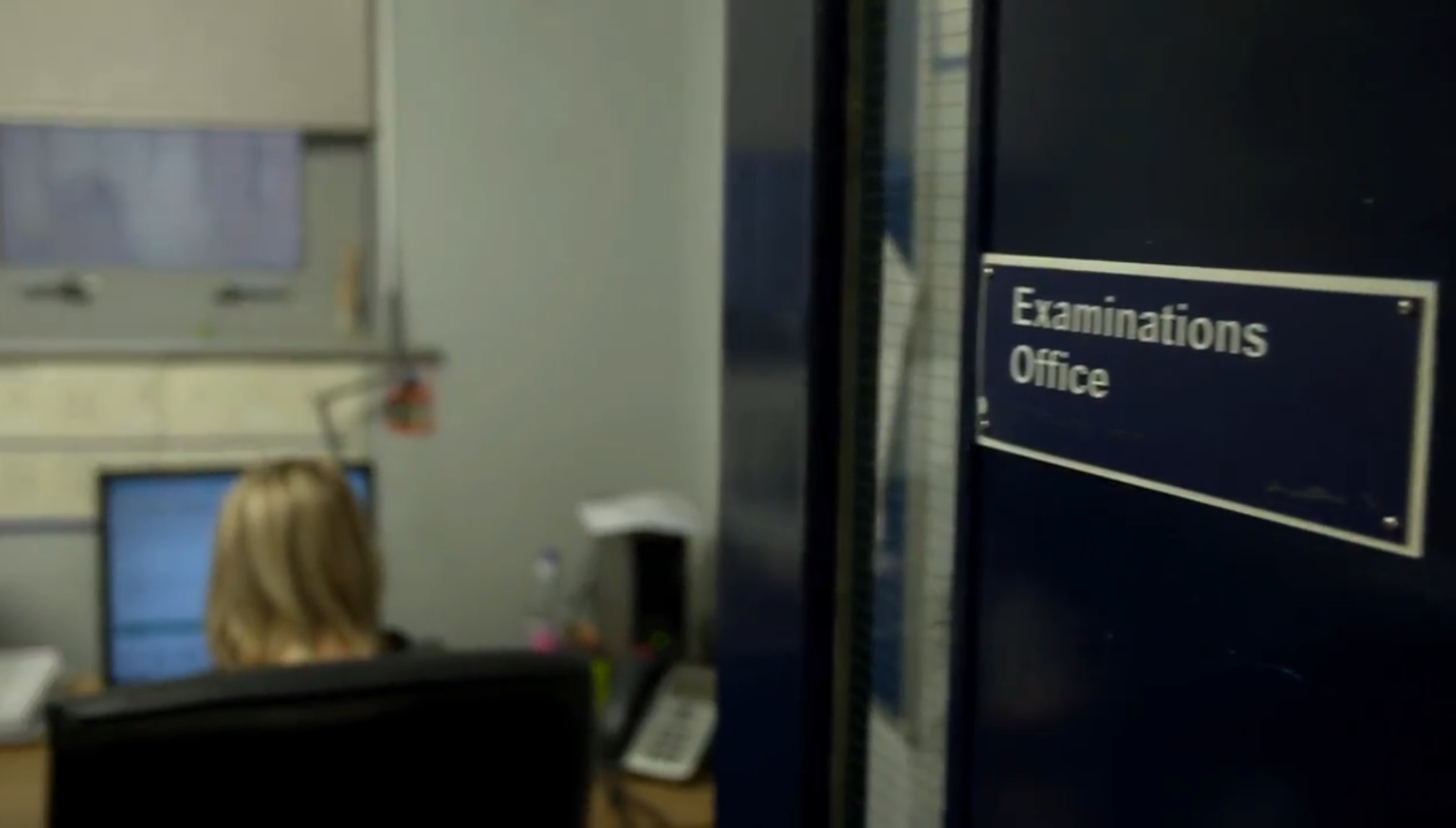
These materials have been developed from the document 'Ensuring equal access to public examinations for candidates with sensory impairment' a NatSIP publication, which has been used as advice to those working with sensory impaired candidates since 2017.
The document is available from the NatSIP website.
Access arrangements
Access Arrangements are pre-arranged adjustments to assessment and examination conditions for candidates based on evidence of need and normal ways of working.
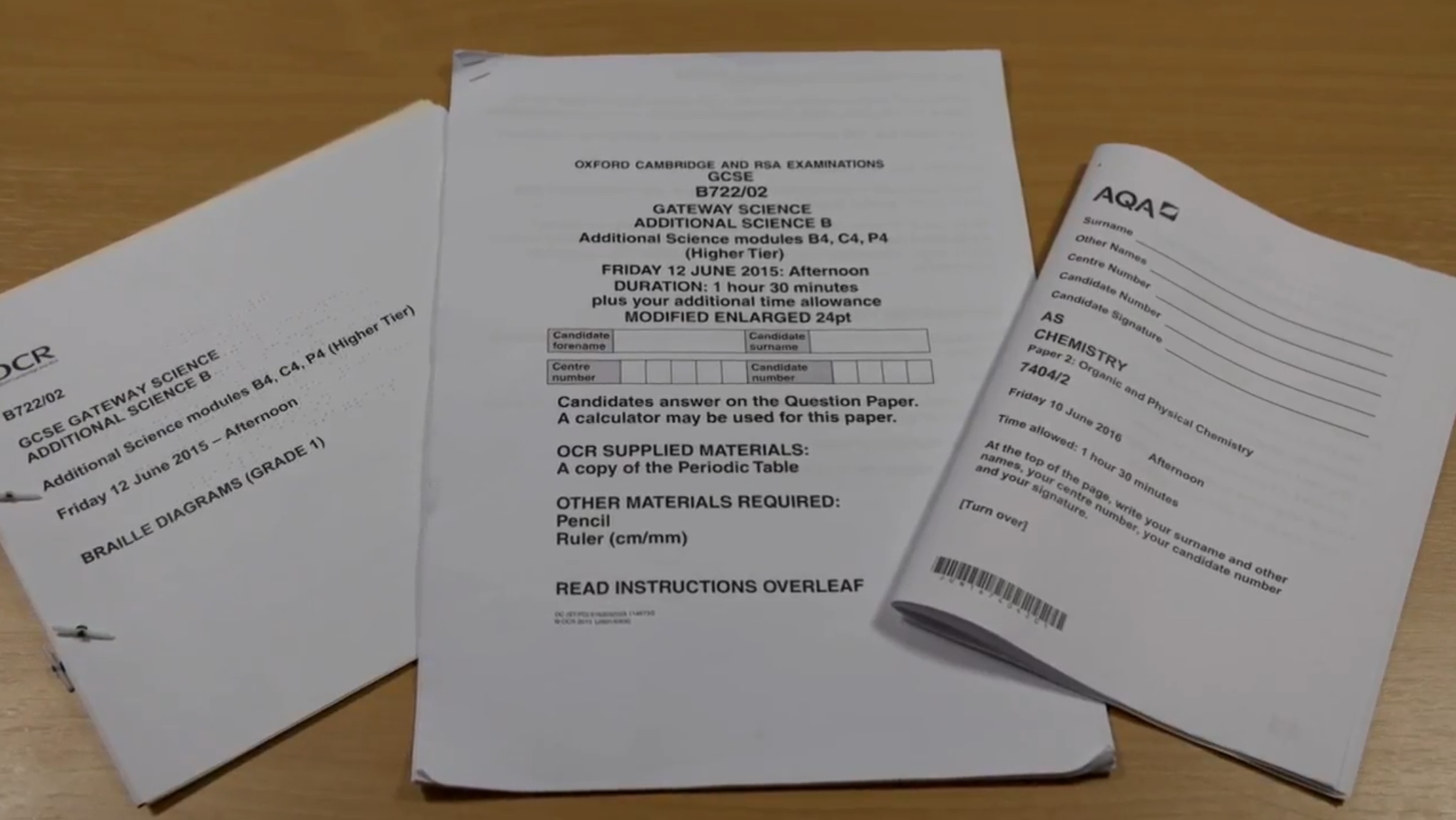
Access Arrangements allow candidates/learners with disabilities to access the assessment without changing the demands of the assessment. This might include, for example, readers, Language Modifiers, scribes and modified question papers. In this way Awarding Bodies will comply with the duty of the Equality Act 2010 to make 'reasonable adjustments'.
Centres should follow the guidance and processes set out by the Joint Council for Qualifications (JCQ).
Relevance
Access arrangements apply to candidates with special educational needs, disabilities or temporary injuries. The focus of this material is on access arrangements relevant to candidates with sensory impairments.
The JCQ guidance refers to the Equality Act 2010 for a definition of disability (refer to the ). This legislation is also the rationale behind the duty of the awarding bodies to avoid discrimination and make reasonable adjustments.
The guidance also gives some helpful examples (refer to the ) of the kind of arrangements that might be anticipated due to difficulties and impairments. These examples are only indicative and each candidate should be treated individually.
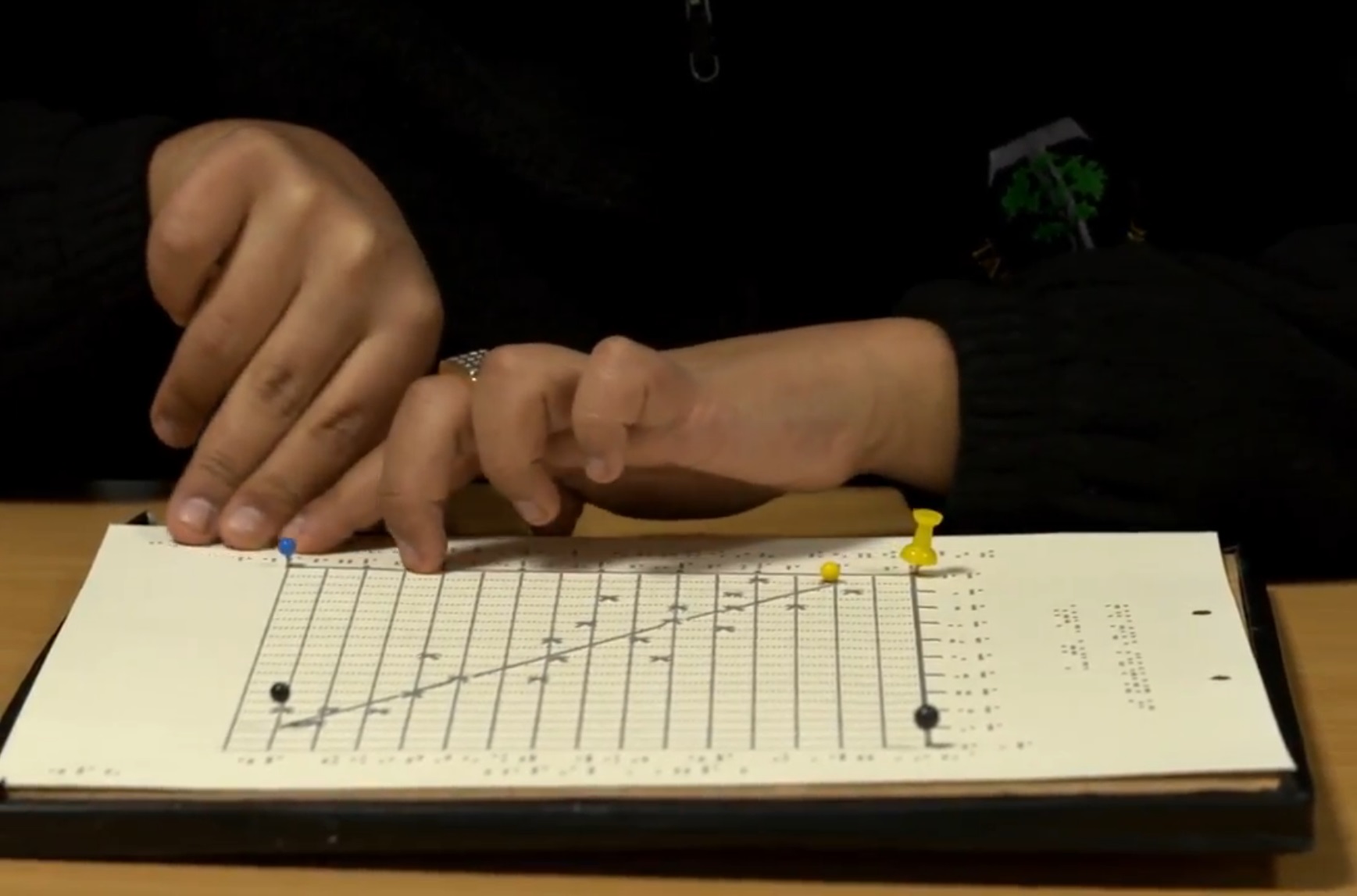
Approval
Access Arrangements fall into categories:
- some arrangements are delegated to centres
- others require prior awarding body approval
This is looked at in more detail in the activity 'Introduction to access arrangements' in the next unit.
Staff
It is anticipated that each centre conducting assessments or examinations will have a SENCo who will determine the candidate's needs, gather evidence of the candidate's normal working practices and compile requests for adjustments to access arrangements. It is recommended that the head and senior management are also familiar with the JCQ guidance in order to be able to manage the processes appropriately. We hope that this will be a useful resource for these professionals.
Approach
This material is designed to be used in a variety of ways.
- to work through in sequence in the style of a course, covering the fundamental aspects of access arrangements - providing a useful introduction to anyone involved in access arrangements
- as a refresher to anyone coming back and wishing to go over the main aspects of access arrangements
- as a reference resource to explore a particular arrangement or aspect of the process
- as a means of gaining access to other materials related to a particular arrangement or topic
To enable these approaches, the materials are open and can be looked at in any order, though it is recommended that initial users follow the sequence of activities.
Structure
These materials are organised into five units and a 'test':
- 'Introduction' (this unit)
- 'Identifying and applying for adjustments' — the principles and processes involved in access arrangements
- 'Access arrangements for candidates' — a more detailed look at a range of arrangements relevant to sensory impaired candidates
- 'Case studies' — a look at arrangements that are relevant to the needs of some sensory impaired candidates
- 'Introduction to exam modification' — a brief introduction to how exam papers are modified, to raise awareness of the process and the styles of modification used
- 'Test' — check your understanding of access arrangements, pass the test and print yourself a certificate of completion
Units and activities are selected using the 'breadcrumb' text at the top of the page.
This 'breadcrumb' also provides an indication of the current unit and activity.

Units contain one or more activities. An activity is presented as a scrollable page. The activity is made up of several sections often beginning with an Overview.
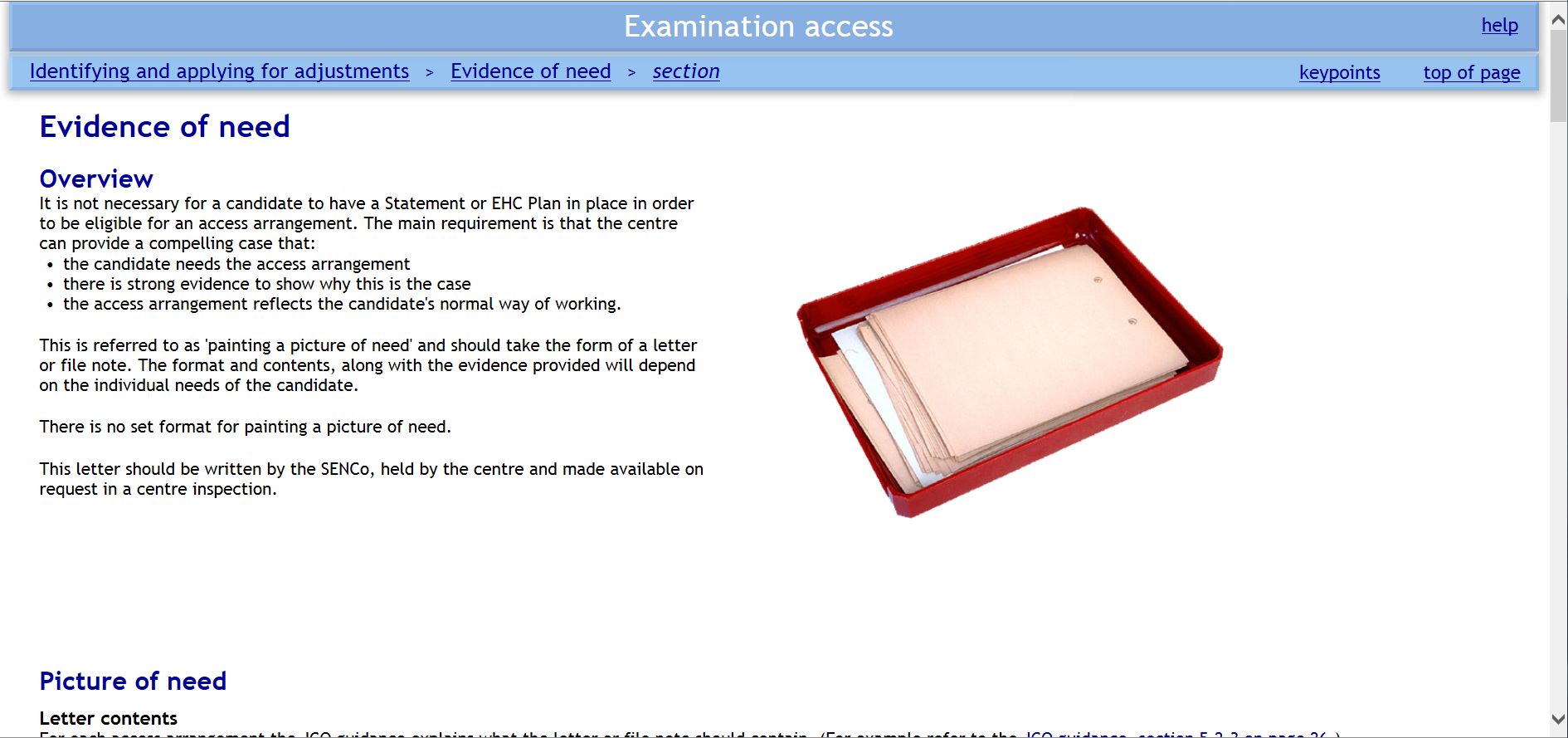
These activities contain descriptions, links and tasks designed to give an understanding of access arrangements, how to go about requesting them and where to go for further information.
Tasks and self-checks
Tasks and self-checks present questions in various formats. You have the opportunity to answer the question and have your response checked.
You will be given some feedback indicating whether you have answered correctly. After a couple of attempts you will be given more information and have the option of seeing the correct answer.
The correct answers are not given out for the end of course test.

No information or scores from the activities are stored. (Your browser may keep a history of activities visited but nothing is maintained by the materials.)
JCQ guidance
The materials make reference to the JCQ guidance for 1 September 2019 to 31 August 2020.
It is the intention that these materials complement and enhance understanding of the guidance. These materials are not a substitute for the JCQ guidance.
Task data
There is a 'self-check' quiz at the end of each unit. These are designed to help you check that you have understood the material. There is no pass/fail to this material. Scores are not recorded and no user data is gathered.
Once you leave an activity any inputs or selections will be lost and the tasks reset.
Copyright
This document is copyright © NatSIP 2017, and is licensed under a Creative Commons Attribution-ShareAlike 4.0 International License. For more details please see http://creativecommons.org/licenses/by-sa/4.0/
You are free to share — copy and redistribute the material in any medium or format, adapt — remix, transform, and build upon the material for any purpose, even commercially, under the following terms:
Attribution — You must give appropriate credit, provide a link to the license, and indicate if changes were made. You may do so in any reasonable manner, but not in any way that suggests the licensor endorses you or your use.
Share Alike — If you remix, transform, or build upon the material, you must distribute your contributions under the same license as the original.
No additional restrictions — You may not apply legal terms or technological measures that legally restrict others from doing anything the license permits.
